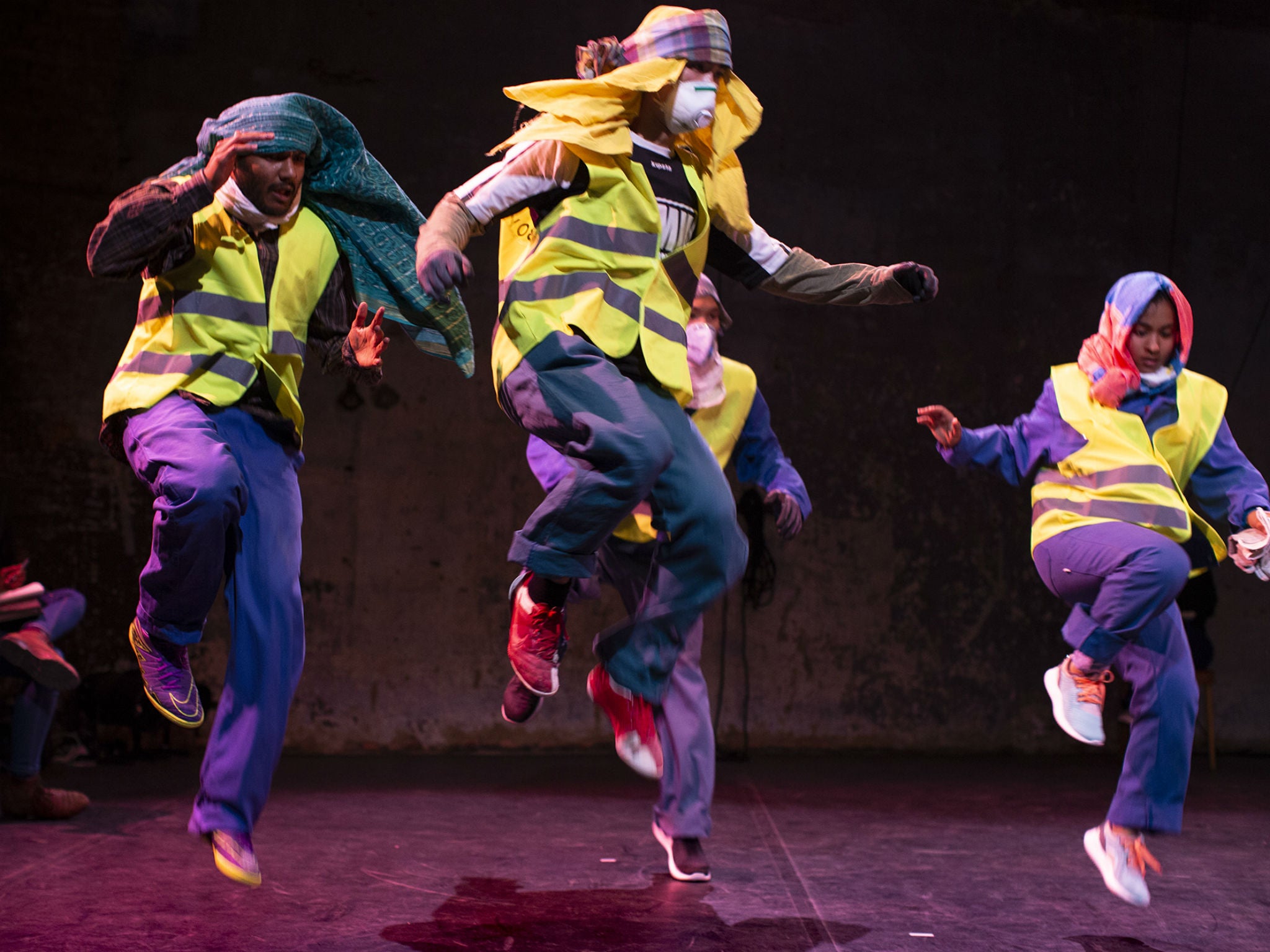Mercenary, Battersea Arts Centre, London, review: Dance meets football in this gruelling look at Qatar 2022
Footballer-turned-artist Ahil Ratnamohan examines the 2022 Qatar World Cup from the point of view of its migrant workforce

Your support helps us to tell the story
From reproductive rights to climate change to Big Tech, The Independent is on the ground when the story is developing. Whether it's investigating the financials of Elon Musk's pro-Trump PAC or producing our latest documentary, 'The A Word', which shines a light on the American women fighting for reproductive rights, we know how important it is to parse out the facts from the messaging.
At such a critical moment in US history, we need reporters on the ground. Your donation allows us to keep sending journalists to speak to both sides of the story.
The Independent is trusted by Americans across the entire political spectrum. And unlike many other quality news outlets, we choose not to lock Americans out of our reporting and analysis with paywalls. We believe quality journalism should be available to everyone, paid for by those who can afford it.
Your support makes all the difference.As the 2018 World Cup plays out in Russia, Ahil Ratnamohan’s Mercenary looks ahead to the 2022 Qatar edition of the tournament, seen from the point of view of its migrant workforce. In a gruelling blend of dance and footballing moves, Ratnamohan and his company evoke both exploitative working conditions and their own wistful dreams of footballing glory.
Based in Antwerp, and appearing as part of the London International Festival of Theatre (LIFT), Ratnamohan is a footballer-turned-performance maker. Mercenary follows well publicised interviews with workers across Qatar, Nepal and Sri Lanka. Condemned by Amnesty International, the building of Qatar’s luxury venues has seen workers crammed into grim accommodation and forced to work in dangerous heat, their passports seized.
Mercenary’s five performers appear swathed in high-visibility vests, breathing masks and heavy gloves. Hints of individuality are buried layers deep – a football shirt, tattoo sleeves. Snatches of muffled dialogue hint at their loneliness, distance from home, unpaid wages and harsh punishments.
The words are often hard to hear, with too much dialogue lost. But the physical storytelling is unmistakable. The performers fall to their knees like hostages, hands on their heads. The sole woman, Rabina Miya, bids farewell to her partner, her face crumpling in grief. It’s understated but powerful, her body folding in on itself, individual and vulnerable.
To Giulia Loli’s Middle Eastern club score, the whole cast go through footballing drills or allow themselves moments of danced celebration. Their personalities emerge as they strip off the heavy clothes, only to vanish again in the brutal demands of the choreography.
Ratnamohan prods at the idea of these people as exploited bodies – as labour, as athletes, as driven performers in front of us. As the training moves get faster and more intricate, bodies are pushed to the point of exhaustion and pulled into unnatural shapes. One man kneels over another, deliberately dripping sweat onto his face.
But Ratnamohan’s unsettling images are muddled by untidy pacing and structure. There’s too much repetition, not enough specific detail. At the end the performers speak personally, describing hopes of footballing careers, giving examples of prejudice against Asian footballers. Mercenary tells these stories with a clarity it doesn’t give the experiences of the migrant workforce. Frustratingly, the labourers have less of a voice than the footballers.
LIFT 2018 continues until 22 July (liftfestival.com)
Join our commenting forum
Join thought-provoking conversations, follow other Independent readers and see their replies
Comments